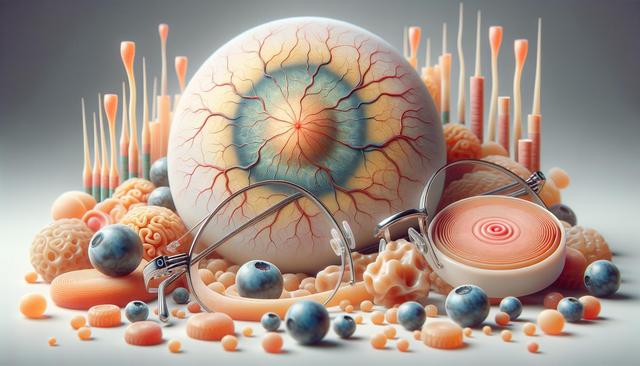Understanding Macular Degeneration
Macular degeneration is a prevalent eye condition that primarily affects the macula, the central part of the retina responsible for sharp and detailed vision. This condition is most common in individuals over the age of 50, categorizing it as age-related macular degeneration (AMD). There are two main types of AMD: dry and wet. Dry AMD is the more common form, occurring when the macula thins with age. Wet AMD, while less common, is more severe and results from abnormal blood vessels growing under the retina. Both forms can lead to significant vision impairment, emphasizing the importance of early detection and management.
Signs and Symptoms
Recognizing the signs of macular degeneration early can be crucial for managing the condition effectively. Common symptoms include blurred vision, difficulty recognizing faces, and seeing straight lines appear wavy or distorted. Some individuals may notice dark or empty areas in the center of their vision. It’s important to undergo regular eye exams, as these symptoms can develop gradually and may go unnoticed in the early stages. Eye care professionals can detect early changes in the retina, allowing for timely intervention.
Effective Treatments
While there is currently no cure for macular degeneration, several treatments can slow its progression and, in some cases, improve vision. Treatment options vary depending on whether the condition is dry or wet. For wet AMD, anti-VEGF injections can help reduce the growth of abnormal blood vessels. Laser therapy is another option to seal leaky blood vessels. For dry AMD, nutritional supplements are recommended to slow progression. The AREDS2 formula, a specific combination of vitamins and minerals, has shown promise in reducing the risk of vision loss.
Lifestyle and Dietary Changes
Maintaining a healthy lifestyle can play a significant role in managing macular degeneration. Key lifestyle modifications include:
- Eating a diet rich in leafy greens, fruits, and fish high in omega-3 fatty acids
- Quitting smoking, as it significantly increases the risk of AMD
- Engaging in regular physical activity to improve overall health
- Protecting eyes from UV light by wearing sunglasses with UV protection
These changes can help maintain eye health and potentially slow the progression of macular degeneration.
Assistive Devices and Support
For those living with macular degeneration, a variety of assistive devices can aid daily living and enhance quality of life. Magnifying lenses, high-contrast reading materials, and electronic devices with voice recognition can be particularly helpful. Additionally, support groups and counseling can provide emotional and practical support, offering strategies to cope with vision changes. It is essential for individuals to work closely with healthcare professionals to find the best resources and support systems available.
Conclusion
Macular degeneration poses a significant challenge, especially for older adults, but with early detection and effective management strategies, its impact can be minimized. By understanding the condition, recognizing symptoms early, and adopting recommended treatments and lifestyle modifications, individuals can preserve their vision and maintain their quality of life. Continuous advances in research and technology promise further improvements in the management of this common eye condition.
